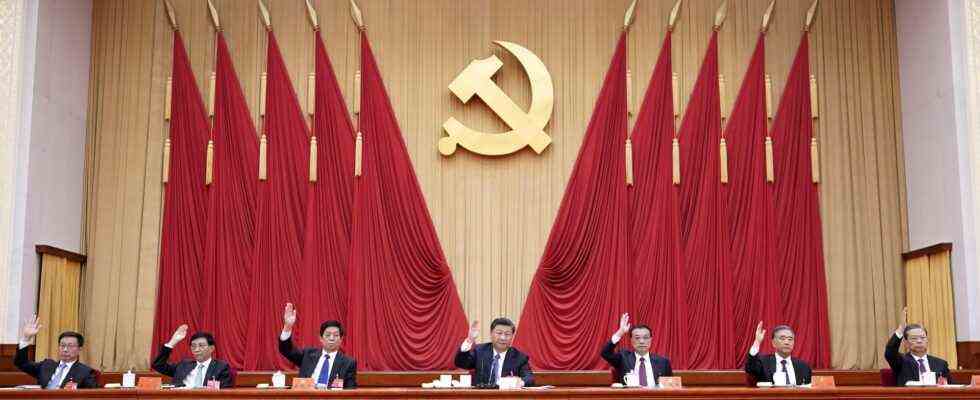As of: 25.11.2021 8:34 a.m.
The traffic light is not planning a complete change of course in China policy. But she wants to appear much more confident than before. That will lead to conflict with the government in Beijing.
Xinjiang, Hong Kong, Taiwan, a free Indo-Pacific region: the new traffic light coalition mentions keywords in its coalition agreement in several places that China’s state and party leadership does not like to talk about. The SPD, the Greens and the FDP say that they want to clearly identify China’s human rights violations in the Chinese part of Xinjiang.
They also demand that Hong Kong should return to the “one country, two systems” principle of autonomy. Another demand of the new government: The Taiwan conflict should only be resolved peacefully.
More open words and with fewer flourishes
All of this sounds like a matter of course, and all of this is fully in line with the policy of the European Union. But the mere fact that red-green-yellow specifically names all these topics shows: Compared to the grand coalition led by Chancellor Angela Merkel (CDU), the traffic light confronts the Chinese government more confidently and with more open words – with less diplomatic flourishes and braver.
An affront from China’s point of view
One thing is clear: the communist government cannot be expected to accommodate any of these issues, on the contrary: the Chinese government regards Taiwan, Hong Kong and Xinjiang as exclusively internal affairs. The mere fact that these issues are mentioned in the new coalition agreement is an affront from the point of view of the state and party leadership.
Even the reference in the coalition agreement that the German government wants to work for a “free and open Indo-Pacific region on the basis of global norms and international law” should not please the communist government. Because international law and global norms are often not recognized by the Xi Jinping government – for example when it comes to territorial claims in the South China Sea.
Scholz friendlier than Baerbock
As far as the staff of the new federal government is concerned, the Chinese government will hope that important foreign and geopolitical issues will continue to be decided in the Chancellery. She rates Olaf Scholz as significantly more China-friendly than the designated Foreign Minister Annalena Baerbock.
Probably the most determined critic of China’s politics within the federal government is likely to be the possible new education minister: Bettina Stark-Watzinger from the FDP. In the past few years she has repeatedly spoken out loudly for free civil society in Hong Kong and the democracy movement there. The discussion about the highly controversial cooperation between German universities and the Chinese Confucius Institutes will continue even further under Stark-Watzinger.
Not just with the economic outlook?
The fact that the new federal government is planning to “significantly expand” its Asia and China competence, as it is called in the coalition agreement, is something that non-governmental organizations and scientists in particular are pleased about. They hope that this statement will result in Germany no longer viewing the People’s Republic predominantly from an economic perspective.
Traffic light coalition: Significantly more self-confidence towards China
Steffen Wurzel, ARD Shanghai, 11/25/2021 8:02 am

